Potential Heritage Conservation Districts – Neighbourhood Consultation
As directed by Council, the City of Brantford’s Long Range Planning team is consulting with five neighbourhoods to ask if residents and property owners are interested in their neighbourhood being recognized as a heritage conservation district. These neighbourhoods were identified through the Heritage Register Project as having distinctive character and the potential to be designated as heritage conservation districts.
None of the neighbourhoods are scheduled for designation at this time. This consultation is simply asking the residents and property owners of these specific neighbourhoods if they are interested in exploring recognition of the neighbourhood as a heritage conservation district. Staff will report back to Council with the results of consultation and recommended next steps which will depend on what is heard from each neighbourhood.
What is a Heritage Conservation District?
A heritage conservation district is one of the tools that municipalities like Brantford can use to recognize and protect properties with heritage value. Heritage conservation districts recognize and celebrate the prevailing character of an area: the buildings and their architecture; their setbacks and scale; the streetscape; and even the tree canopy.
When a municipal Council creates a heritage conservation district by passing by-law, a district plan will be adopted (approved) by Council as well. This district plan includes the neighbourhood history; information on the properties within the heritage conservation district; and guidelines for maintenance and how exterior renovation and new construction should be designed to respect the neighbourhood character.
The Neighbourhoods
| Commercial Downtown (North Side of Dalhousie Street) |
|
Downtown Brantford represents the historic focal point of civic and commercial activity in the City of Brantford (incorporated as a Town in 1827 and as a City in 1877). The north side of Dalhousie Street has strong historical associations and contains a collection of different styles of historical commercial architecture from several eras. Neighbourhood Open House Details:
Consultation Area:
|
| Waterloo Court (Waterloo Street opposite Fleet Street) |
| Waterloo Court features a collection of homes built around a privately owned parkette c. 1920s. This group of homes is unique because the houses collectively feature repetition and mirroring, with several mirrored pairs. The homes were all built and sold by the Brantford firm of Schultz Brothers Construction.
Neighbourhood Open House Details:
Neighbourhood Consultation Area:
|
| Victory Housing (Eagle Place) |
|
Victory Housing was a government-funded initiative to provide housing for workers in wartime factories and later for returning soldiers after the Second World War. Victory Housing was built between the 1940s and 1960s and could be considered the precursor of later suburban development trends. This collection of Victory Housing in Eagle Place was built near the Cockshutt factories. Neighbourhood Open House Details:
Neighbourhood Consultation Area:
|
| Lansdowne Park Estates (Dominion Steel Neighbourhood) |
|
This neighbourhood was created by the Dominion Steel Company for some of its workers, but the housing forms show a range of styles from different eras. The most notable is the collection of houses along Lincoln Avenue and Devonshire Avenue. The neighbourhood also has a distinctly different street layout (slightly curvilinear) than the grid pattern of other nearby neighbourhoods. Neighbourhood Open House Details:
Neighborhood Consultation Area:
|
| Dufferin Avenue, Lorne Crescent, and Neighbourhood |
|
Dufferin Avenue, Lorne Crescent, and the nearby surrounding neighbourhood are home to some of the largest and most stately homes in Brantford, built in the late 1800s and early 1900s. Many of the homes are associated with prominent individuals and families in Brantford at the time. Neighbourhood Open House Details:
Neighbourhood Consultation Area:
|
Frequently Asked Questions
| Are properties within heritage conservation districts “designated heritage properties”? |
|
Yes, they are considered designated under the Ontario Heritage Act. Some properties have individual designations that are specific to that one property, under their own designating by-law. In a heritage conservation district, the area is designated for the collective value of the properties within it, under one designating by-law and a heritage conservation district plan. |
| When is my neighbourhood being designated? |
|
This project is simply asking the residents of these specific neighbourhoods if they are interested in having the neighbourhood recognized through heritage conservation district designation. None of the neighbourhoods are scheduled to be designated at this time. Staff will consult the neighbourhoods and then report back to Council on whether or not there is widespread interest in the neighbourhood being designated. Refer back to the individual neighbourhood listings above the Frequently Asked Questions for details on consultation and reporting dates. |
| What if only a small group of owners want neighbourhood designation? |
|
The exact recommendation will depend on the results of consultation, but two possible approaches are:
|
| What happens if most owners want a heritage conservation district? |
| Staff will outline the level of interest and would request a project budget from Council. Then, if Council provides direction to proceed, the project team would establish a project work plan and continue working with the neighbourhood through the designation process, including the preparation of a heritage conservation district plan. |
| If my neighbourhood becomes a heritage conservation district, does that mean that I can’t make any changes to my property? |
|
Properties within a heritage conservation district can be altered and renovated. Interior alterations to properties in a heritage conservation district do not require a heritage permit. If work would be both internal and external and a heritage permit is needed, then the permit only considers matters that deal with the exterior. For exterior alterations, if a heritage conservation district is designated, then the City will also adopt a heritage conservation district plan as part of the designation process and it will include guidelines for maintenance as well as renovations and new development. The guidelines will detail strategies and approaches that allow for renovation to occur, but in a way that respects neighbourhood character. Some work will require a heritage permit approval. The heritage conservation district plan will also outline work that does not require a heritage permit. |
| How much does a Heritage Permit cost? |
|
The City does not charge a fee for Heritage Permits. If work on your property requires a building permit and/or a planning application (e.g. a minor variance), you will have to pay application fees. Building permit and planning applications fees apply to all applicants, regardless of heritage status. |
| If my neighbourhood does become a heritage conservation district, does it mean I’ll need to spend more money maintaining my property? |
|
No. Designation does not impose any additional maintenance requirements. Properties within the City of Brantford are subject to the same by-laws (e.g. Property Standards By-law, Noise By-law, etc.) whether or not they are designated heritage properties. Please keep in mind that older buildings (whether or not they are designated heritage properties) can sometimes require more (or specialized) maintenance because of their age and/or materials. |
| Is there any assistance available to help owners maintain their properties? |
|
Yes, for properties within a heritage conservation district as well as individually designated properties, the City offers a Heritage Grant Program to help property owners maintain their properties’ heritage attributes. The program provides a grant for up to 50% of the eligible project costs, to a maximum grant amount of $20,000. You can find out more about the Heritage Grant Program by visiting the Build Brantford Heritage Planning webpage. |
| Will this affect my property taxes? |
|
A heritage conservation district does not increase property taxes. Property taxes are set by property class, using the assessed value calculated by the Municipal Property Assessment Corporation (“MPAC”). Assessed value is often different than market value of a property when it is bought and sold. |
| I’ve heard that heritage designation reduces my property’s resale value. |
|
We have heard this story as well, and it’s a legitimate concern. Owning property is often the largest investment that someone will make. This claim has been investigated and in many cases, it turns out to be untrue. You can look at these links below for more information including case studies (please note, the links below will take you to sites that are not affiliated with the City of Brantford): Ontario Real Estate Association:
Canada’s Historic Places: “Property Values and Taxes”. McMaster University: “Investigating the Impact of Heritage Property Designation on Real Estate Value” (via MacSphere – McMaster University Libraries Institutional Repository). Civic Plan: “The Economic Value of Heritage”. |
| Will this affect my property insurance? |
|
A heritage conservation district should not increase your insurance costs. Some insurance providers may choose not to insure buildings over a certain age or they may have questions about the type of wiring (e.g. knob and tube), lead waterlines, or the age of some appliances like a furnace or boiler. We have received questions about fire damage, new construction, and total losses in the past too: heritage conservation district designation does not require that a building be restored exactly as it appeared. The Government of Ontario also has an webpage on heritage properties and insurance. |
| Are there any heritage conservation districts in Brantford? |
|
Yes, there are two heritage conservation districts in the City:
You can see details about each district by referring to their respective District Studies as well as Brantford’s Heritage Register. |
| How many heritage conservation districts are there in Ontario? Is there a way to find out more? |
| The Ontario Heritage Trust maintains the Ontario Heritage Act Register and has records of all heritage conservation districts in the province. They also maintain a heritage conservation district webpage that notes there were 134 heritage conservation districts in Ontario as of March 2020 |







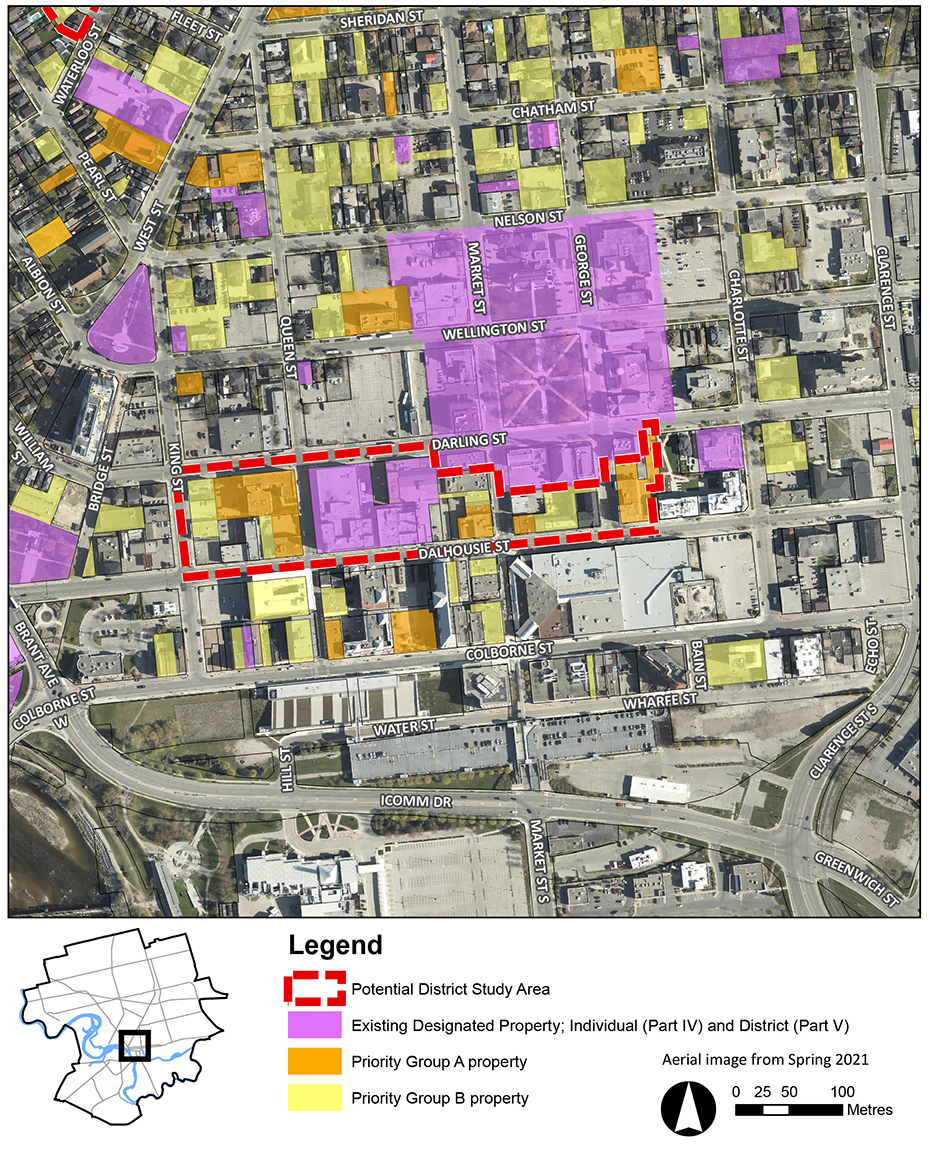
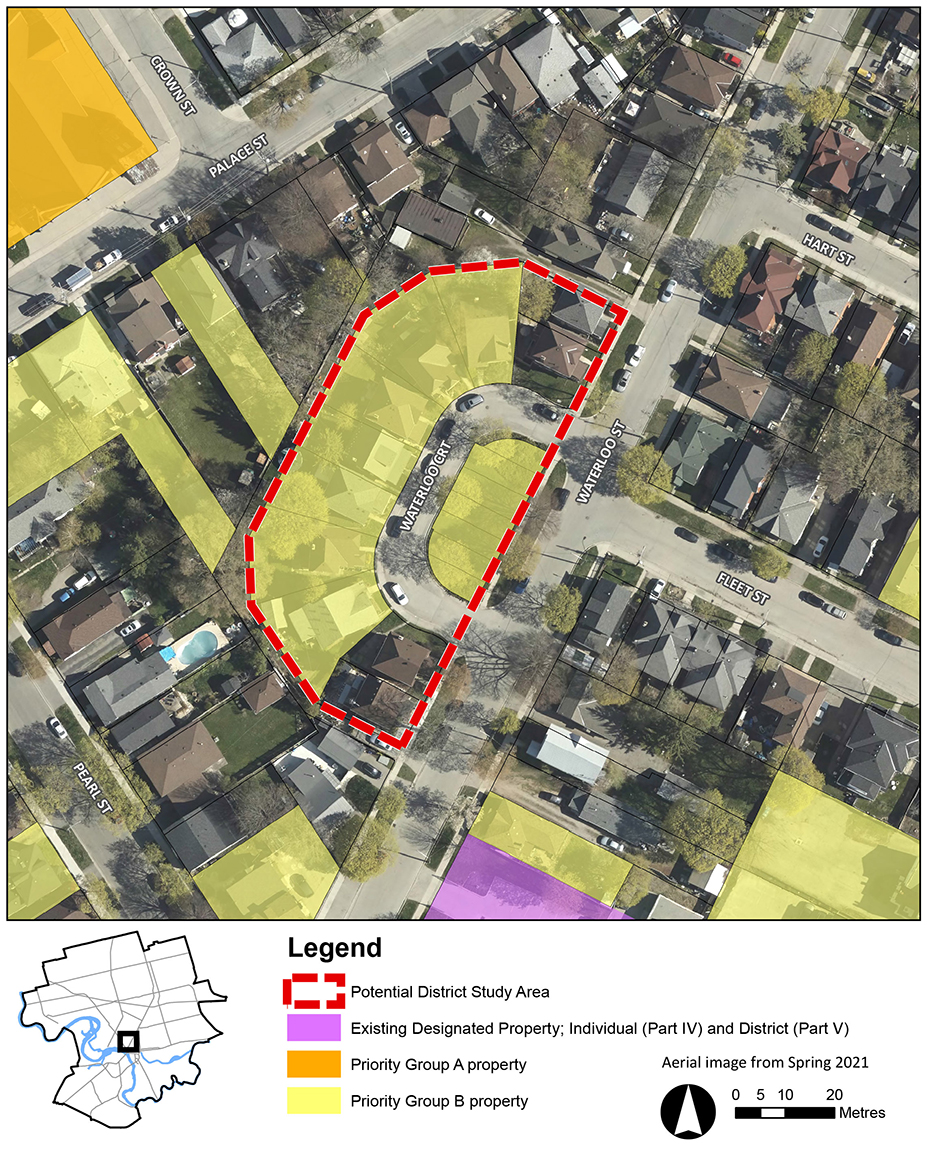
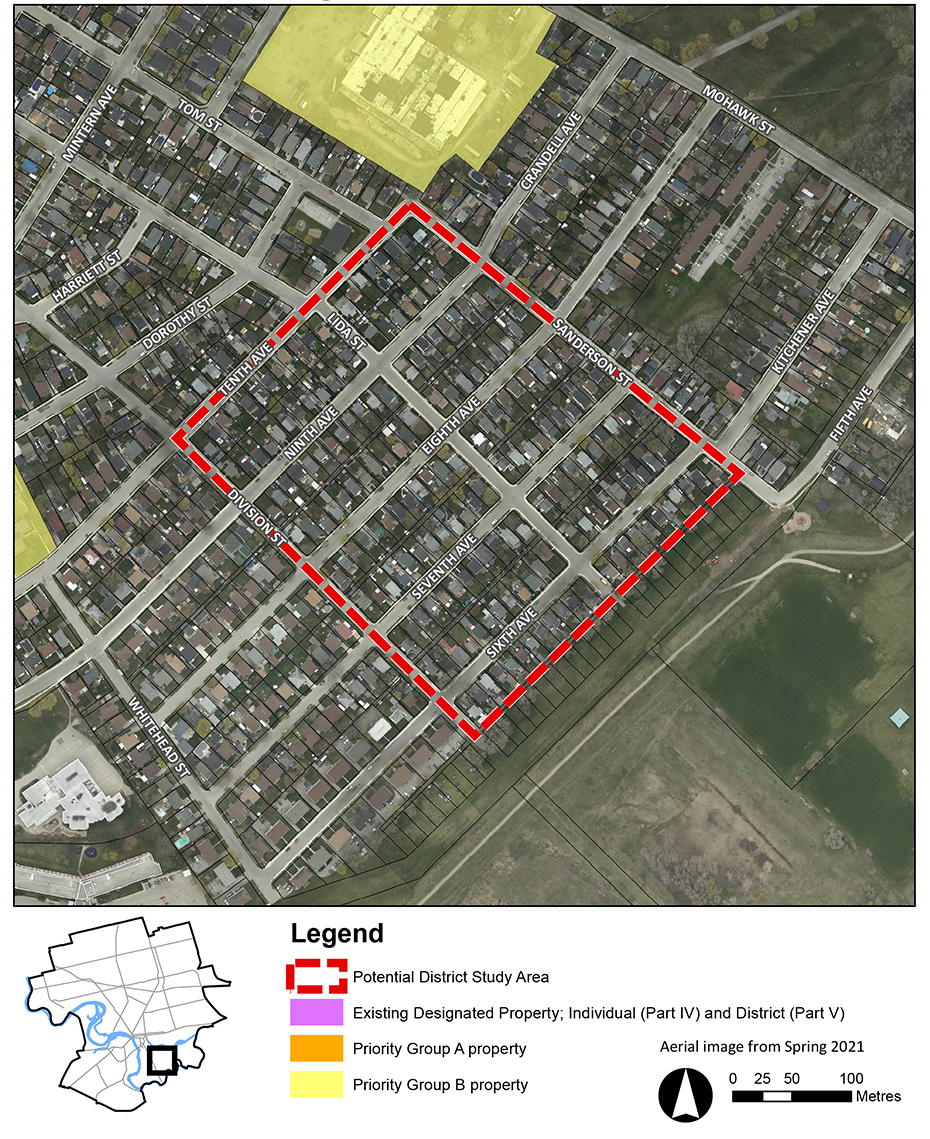
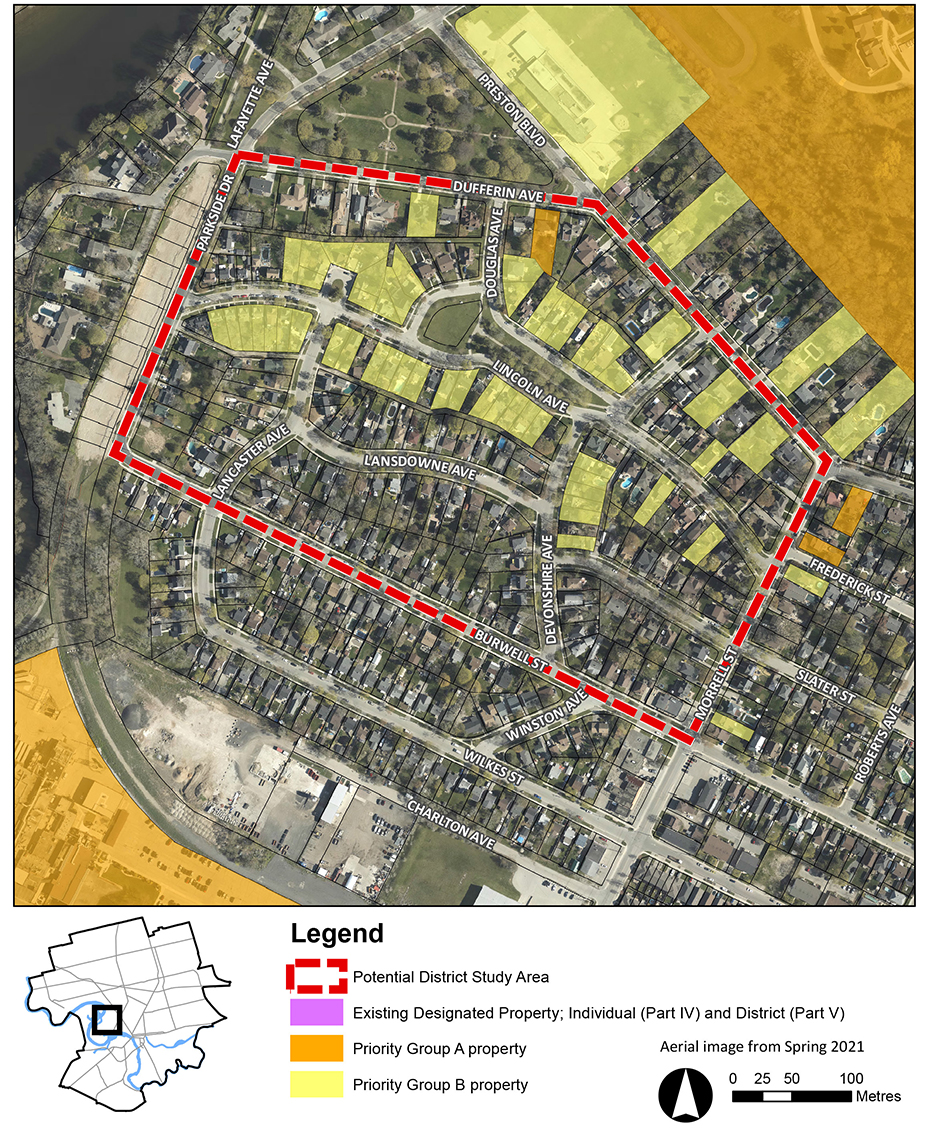
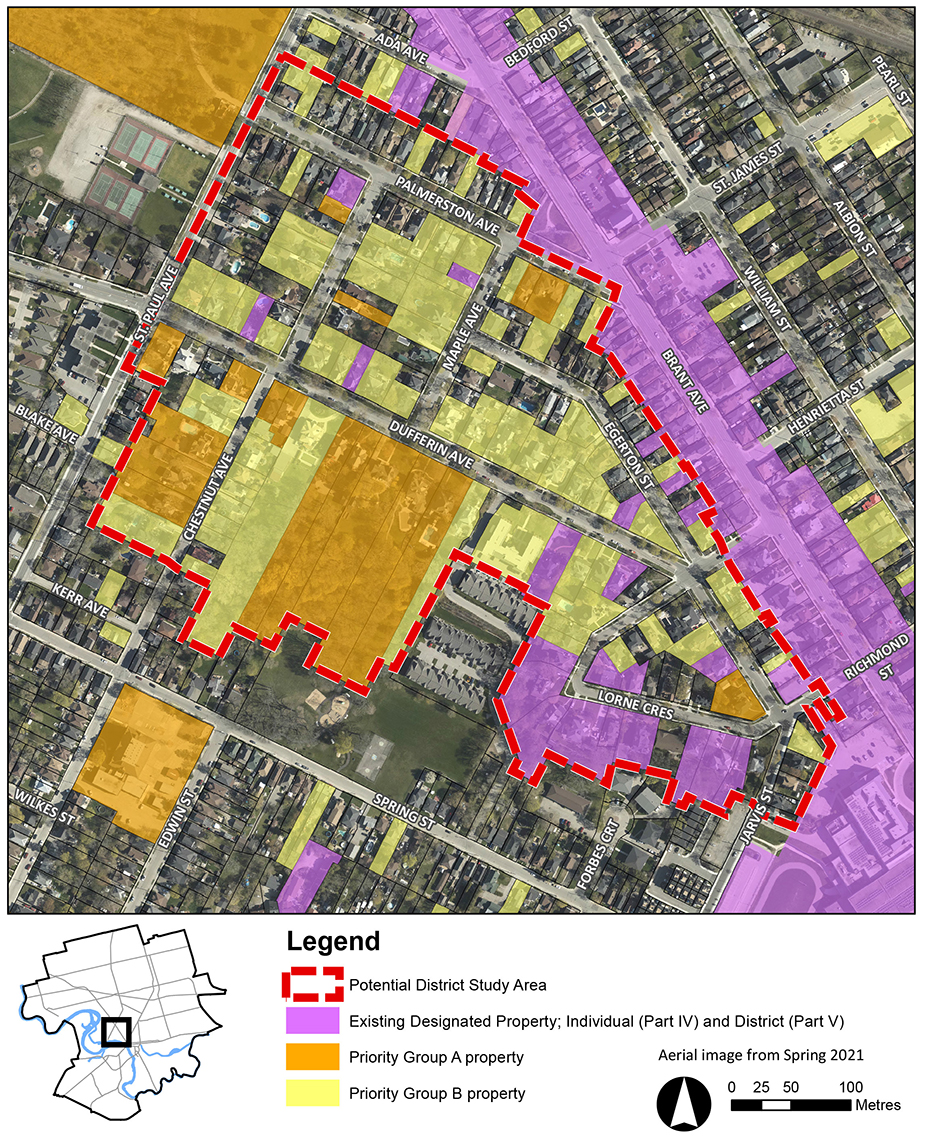

 Subscribe to this Page
Subscribe to this Page